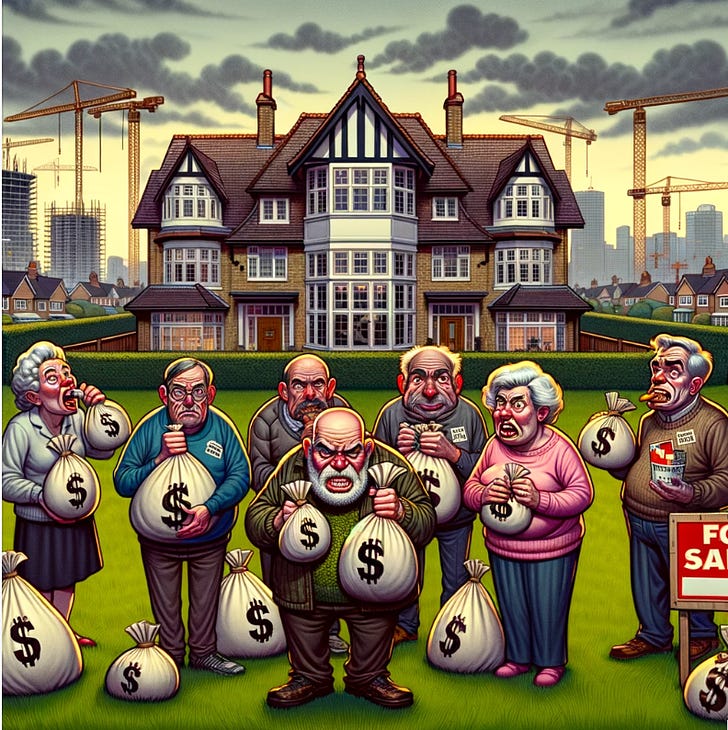DRAFT: Why Do Homeowners Tend to Think They Deserve Strong Housing-Price Appreciation?
A note on a very interesting observation by Addison del Mastro. But not ready for primetime yet. Hence behind the paywall...
People buy assets and create assets in the hope that they will go up in value. Thus expectations of future asset-value increases are a key motivator in getting society to focus on making what people—or at least the rich—will want to have provided in the future. And those who have foresightedly increased demand for assets and hence called forth the creation of more of the desired asset class are worthy both by virtue of their thrift and their wisdom. And it is meet that they should be rewarded.

And so we arrive at Addison del Mastro puzzled and somewhat sardonic observations:
Addison Del Mastro: Prices Aren't Metaphysics: ‘Market signals, not revelations…. Here’s a bit from a previous piece at this newsletter, titled “Housing and Deservingness.” I was responding there to people who reply, when I talk about housing affordability, something like, “I just think people should buy what they can afford”:
People aren’t necessarily arguing that this has to do with deservingness per se. I’ve heard the argument that (paraphrasing) “I don’t necessarily think that it has anything to do with deservingness; it has to do with the idea that if you want something, you pay for it. In other words, not do you deserve it but can you afford it? That’s economics, not moralizing.” Fair point. But in many ways that’s a distinction without a difference. It depends on how you see those prices, and what you think they mean. Because some people aren’t just saying “if you want a nice house you’ll have to afford it.” They seem to be saying, even if they don’t say it outright, something closer to “It would be wrong to take actions to lower housing prices, because that would be giving people something they haven’t earned.” In other words, home prices for many people effectively serve as proxies for deservingness. They effectively view freeing up the housing market or the land-use regime as if it was giving a handout—a fallacy many such critics would readily see in any other context.
I want to think some more about this. What it seems like to me is that some people view prices not as market signals, but as metaphysical facts or revelations: This thing is valuable, and lowering its price would be to devalue it. Not in the obvious economic sense, but in some vague moral sense…
The underlying idea that Addison del Mastro is trying to pin down is that the economy owes you: it owes you not just that it is easy to get a good job and not just that inflation be kept low but it owes you “number go up!”—that you profit from your assets as well as earning from your labor.
Keep reading with a 7-day free trial
Subscribe to Brad DeLong's Grasping Reality to keep reading this post and get 7 days of free access to the full post archives.




